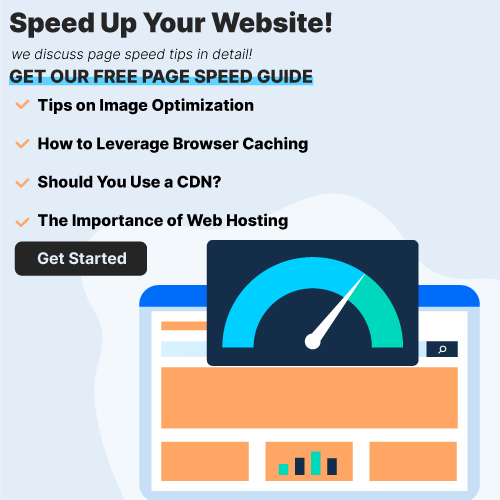Choosing a website hosting company for your eCommerce site is one of the most important decisions you will make when starting up an online business. You need to be sure that your website is being hosted by a reliable provider who offers sufficient bandwidth, storage space, and excellent customer service. In this blog post, we have compiled a list of the best ecommerce websites we could find!
Recommended Web Hosts for Open Source Ecommerce Platforms
If you are running Magento or WordPress / WooCommerce as your shopping cart, then these web hosting providers will be of interest to you.
1.) WebCitz
WebCitz brings a lot to the table for their shared web hosting services.
For starters, they offer a lot more server resources than your typical shared web hosting service. For example, they set PHP memory_limit to 2048MB and max_execution_time to 300 seconds. This is really helpful for websites that have demanding web applications, but not the budget to move into a VPS web hosting solution. We’ve seen other web hosting providers restrict the max_execution_time to 60 seconds, which is really unfortunate if you have complex database queries that need to be run from time-to-time.
In terms of website performance, they run LiteSpeed Web Server which allows a WordPress site to install the LiteSpeed Cache plugin. We’ve noticed in the past that LiteSpeed Cache, with “Guest Mode” optimizations set to “on,” has been able to easily help a WordPress site pass Google’s Core Web Vitals. This often works better than proprietary caching systems offered by some hosting providers.
When it comes to backups, they offer nightly and weekly backups on all of their shared web hosting services. The nightly backups are stored in the same data center, whereas the weekly backups are stored remotely in a different geographic region.
Their web servers are located at Hivelocity data centers in Tampa, FL or Dallas, TX. These are state-of-the-art data centers, so that is also a good sign for the security and connectivity of the web servers. For server hardware, they offer shared web hosting on two different system configurations. The lower-cost solution is called their “performance hosting,” which runs on dedicated servers with Dual Intel Xeon 5220 CPUs (36 Cores, 72 Threads), 128GB+ ECC Server Memory, and Hardware RAID-10 SSD Storage w/ BBU. That hosting service starts at $249/year for 10GB of storage. Their more expensive solution is called their “supercharged hosting” which runs on dedicated servers with AMD EPYC 7742 CPUs (64 Cores, 128 Threads), 256GB+ ECC Server Memory, and RAID-10 NVMe Storage. That hosting service starts at $500/year for 10GB of storage.
2.) SiteGround
SiteGround has been a great choice for us over the last few years. I’ve always been happy with their server performance and control panel. From their control panel, you can restore to your own backup point. For most web hosting companies, you have to contact customer service to get a backup restored. They also have good server performance and customer service. Another feature we like is their collaborator functionality, which is far better than GoDaddy who has a similar feature that allows site owners and developers to share access.

Hosted Ecommerce Platforms
What if I told you that finding a web hosting company isn’t required to set up an eCommerce store? It’s true… there are platforms that are 100% managed so you don’t have to worry about servers, uptime, or any of the other intricacies that are involved with running an ecommerce business.
There are two main considerations when choosing a hosted platform for your store – cost and features! You’ll want to look at all of the different plans offered by each provider in order to find one that is within your budget while still meeting all of your needs.
Some popular hosted ecommerce platforms include Shopify and BigCommerce. Let’s talk a little about each.
1.) Shopify
Shopify is one of the best-hosted eCommerce platforms that allow you to build an online store without any coding experience. With complete design customization and web hosting included in the subscription, they make it easy for beginners to get their site up and running fast!
When it comes to Shopify pricing, there are many factors that determine how much you’ll pay. Since they offer monthly and yearly plans with no contract necessary, it gives their users complete flexibility and freedom to choose the best option for their business, without any commitment!
For new ecommerce companies looking to get started as quickly as possible, the $29/month basic plan is the best choice. It is perfect for new businesses and offers unlimited bandwidth, products, customers & orders. This is a great option if you’re looking to get your brand up and running without any hassle!
For established brands with more complex requirements, Shopify Plus might be necessary. However, at $2,000/month it’s not the most affordable solution on the market today.
Overall I would recommend giving Shopify serious consideration as they are one of the easiest platforms available that doesn’t require extensive knowledge or coding experience! Best of all – their customer support team can be contacted 24 hours a day, which means there is always someone ready to help.

2.) BigCommerce
BigCommerce is another hosted ecommerce platform that has been gaining popularity over the past decade. Like Shopify, you can get your ecommerce business up and running very quickly.
There are differences between Shopify and BigCommerce, though. It really isn’t a bad idea to get an account with both Shopify and BigCommerce to see which admin interface, product entry system, and base functionality you prefer the most. This is really important if you have complex product data and aren’t sure which platform will best suit your needs, especially if you are coming from Magento which has the most robust product management system of all the platforms I’ve used in the past. Both Shopify and BigCommerce can be extended with apps, though prepare for expensive monthly fees compared to open-source ecommerce platforms. I’d definitely give it to BigCommerce for developing a more advanced and capable API, but that isn’t something every ecommerce business will take advantage of on their platform.
Their premium plan will give you access to priority support (24/7/365), unlimited bandwidth & storage space, and no transaction fees. If you’re looking for a hosted platform but aren’t sure of what features are most important this may be just right for you! If you plan to get a lot of monthly orders (thousands each month), maybe check with BigCommerce for pricing for that order level so you understand what types of costs you are going to be facing down the road.

FAQs
Can you use your own hosting provider with Shopify or BigCommerce?
No! Both of these platforms are hosted solutions, which means you don’t get access to the source code of their applications. You can control the design of your website within each platform, and interact with their API to perform more technical work.
What is a good starting budget for ecommerce web hosting?
For Shopify or BigCommerce, each has a service level that starts around $30/month. If you are using an open source ecommerce platform like Magento or WordPress/WooCommerce, you’ll need a web hosting service to run the application. Prepare to spend at least $20/month for a reliable web hosting service that won’t make you spend an hour when you have a question.
Do Shopify and BigCommerce allow you to change your plan?
Yes, both Shopify and BigCommerce allow you to upgrade or downgrade your service levels. Most ecommerce web hosting companies, such as WebCitz, allow you to upgrade or downgrade the web hosting plan of your open-source shopping cart, as well.
What is the best Shopify plan?
It all comes down to how much you think you’ll sell. Each plan is designed to accommodate a certain amount of store traffic and transactions. So if you think that your store will be selling upwards of $50,000 per month, then the Shopify Plus plan is probably best for you!
Should I pay monthly or yearly?
You will usually save money by paying for one year upfront. However, consider how confident in the service you are. If you are unsure of how well it will work for your business, paying monthly may be a better option.
